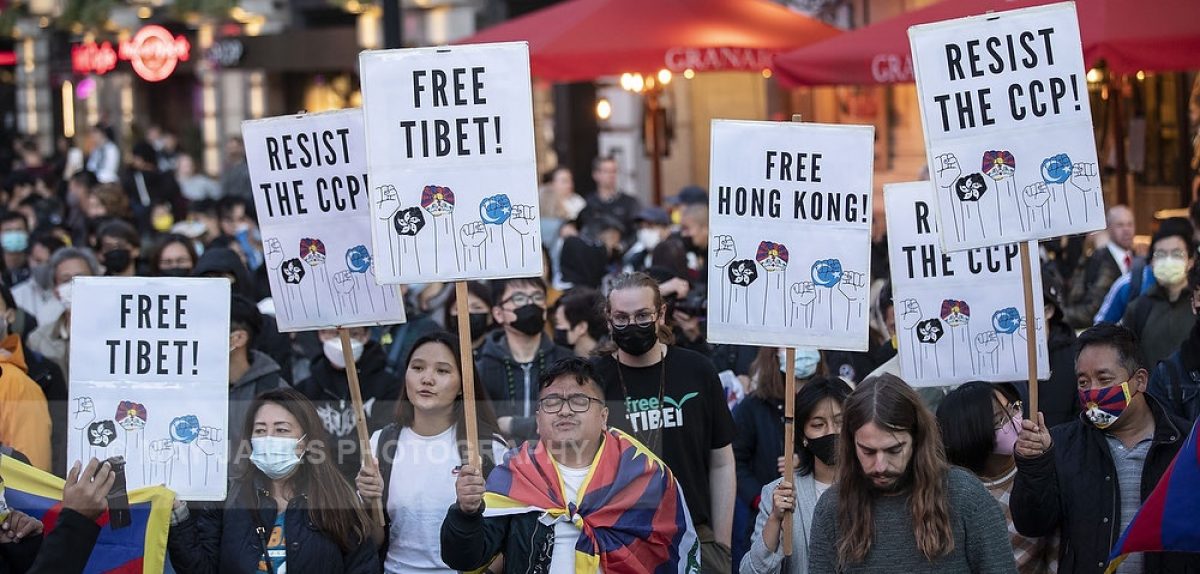OBITUARY: ROBERT FORD (1923-2013)
By Tenzin Zega (UK)
The only Inji to serve as an employee of an independent Tibetan government, we Tibetans owe an immense sense of gratitude to Robert Ford (or “Phodo” as he was called in Tibet) who died on Friday morning, the 20th of September, at the age of 90.
He was of course the famous radio operator in Chamdo responsible for connecting the town to the capital, Lhasa. But Ford was much more than that. Ford loved the Tibetan people and wanted to help the country with his skills. He forged strong friendships with progressive Tibetan minds like Jigme Taring and Dzasa Tsarong to usher Tibet into 20th century. The Tibetan Government wanted him to set up a radio network throughout Tibet.
Indeed, had his advice been heeded about installing a forward radio post closer to the border at Riwoche, it is possible that Chamdo would not have fallen so quickly. One only wishes it was the more open Lhalu, rather than Ngaboe who had to face the invading Chinese as Governor General of Kham, because Lhalu and Ford had a more open working relationship. Ngaboe, on the other hand, according to Ford, was distant and formal. As a Tibetan, one can only feel ashamed by the way Ford was abandoned by Ngaboe at Chamdo to the advancing Chinese army.

A grammar school boy brought up in Burton-on-Trent in England, Ford worked as a radio technician during World War II and in 1945 joined the British Mission in Lhasa as a radio operator, having his first audience with a 11 year old Kundun. Thanks to India gaining independence, Ford returned to Tibet in 1947 to be employed by the Tibetan Government.
Like the other injis in Tibet at the same time, such as Heinrich Harrer and Peter Aufschnaiter, Ford was lured by the ‘mystique and adventure’ of Tibet – although he did introduce the tango to Lhasa! These injis – although from very different backgrounds – were united in their love for the land and the people and had a common desire to modernise Tibet whilst retaining her unique culture. Indeed, while receiving the Light of Truth Award from the Dalai Lama in April 2013, Ford said that his time in Tibet had been “the happiest years” of his life.
Newspapers at the time described him as “the loneliest Briton in the world”. Of course, Ford disputed that, saying he was having the “adventure” of his life – until, of course, China’s invasion. Unlike other Injis who socialised with the upper echelons of Tibetan society (mainly in the capital), Ford’s posting in Chamdo meant that he mingled with ordinary Tibetans and could keenly observe their customs and manners.
He was a true friend of Tibet who stood shoulder to shoulder with the Tibetan people in their hour of need. Although Ford was offered the chance to leave for England before the 1950 Chinese invasion, he stayed – out of loyalty to Tibet – a decision which subsequently cost him nearly five years in jail in China. He suffered repeated interrogation and thought reform, living in constant fear of death, until his release and expulsion in 1955. He had been accused of being a spy for the British and causing the death of a pro-Chinese Tibetan Lama. His imprisonment would have perhaps been reduced had he revealed his ‘suspicions’ about the real perpetrator but Ford – true to his character – endured the suffering rather than betray a Tibetan. Unsurprisingly, he has taken the secret to his grave.
He wrote about this experience in “Captured in Tibet” published in 1957 (and republished in the USA in 1990).
After the Tibet phase of his life, Ford served as a diplomat in various posts around the world ending his career as Consul–General in Geneva, Switzerland before retiring in 1983. In 1982 he had been awarded a CBE (Commander of the Order of the British Empire). During his retirement he resumed his active campaign for Tibetan freedom: Ford was visibly moved when the Tibetan community in the UK celebrated his 90th birthday earlier in the year at Tibet House (London) in honour of all the work he had done for Tibet.
He is survived by his two sons Martin and Giles.

